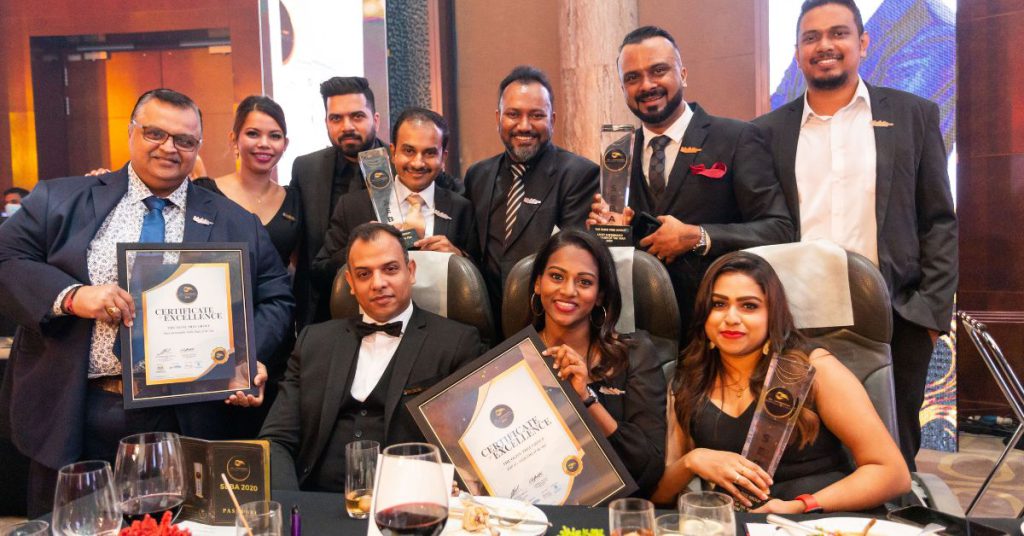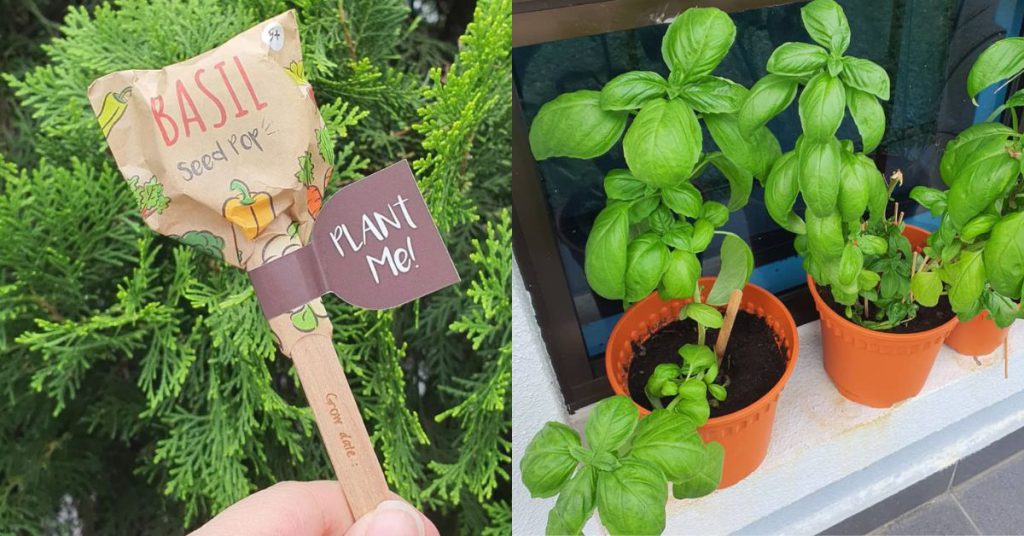4 M’sian startups that bagged part of this RM45mil fund for insurtech & fintech solutions

Hong Kong-based insurance company FWD Group has partnered with Malaysia-based firm Artem Ventures to launch an RM45 million venture capital (VC) fund, announced in a press release today.
The fund, named TIM Ventures, will invest in emerging startups in the insurtech and Islamic fintech space in Malaysia.
“By launching TIM Ventures, we hope to support early-stage entrepreneurs in Malaysia by not just providing them with financing, but also helping to connect them with the networks and expertise they need to succeed,” said Sim Preston, FWD Managing Director and Group Chief Operating Officer.
Founded in 2013, FWD is the insurance arm of investment group Pacific Century Group and has been present in Malaysia since 2019.
It’s already funded four startups
The fund has already invested in four Malaysian startups, including winners from the FWD Group’s 2021 pre-accelerator, FWD Start-Up Studio. The funding amount for each investment is undisclosed.
Namely, the four startups are Senang, Pewarisan, Du-It, and Blueduck.
Senang is an on-demand subscription-based insurance company that we’ve featured in the past. A B2B startup, it aims to allow corporations and SMEs to get one-off insurance coverages.
In 2019, it made headlines for collaborating with maid-booking platform Maideasy and providing cleaners with daily on-demand personal accident insurance for only RM1 per day.
Pewarisan, referring to the Malay word that means inheritance, is an online platform providing digital solutions for Islamic inheritance planning. Specifically, it gives users access to succession planning and estate management.
Malaysian Buy Now, Pay Later fintech startup Du-It is also on the roster of startups. According to its website, Du-It covers both B2C and B2B solutions that leverage its team’s collective experience of more than 20 years serving the fintech industry.
Last but not least is Blueduck, a zero-deposit insurance agency serving landlords and tenants in Malaysia. Essentially, this startup replaces the traditional security deposit system.
According to iBilik, which has partnered with Blueduck since 2020, the system works by allowing a tenant to rent a property by only paying the equivalent of one week’s rental along with an advance rental for the first month.
-//-
Something that is often discussed when it comes to growing and fostering Malaysia’s startup ecosystem is participation from private companies.
Thus, funds such as FWD Group and Artem Ventures’ TIM Ventures should be regarded as a great initiative for our local insurtech scene and, by extension, the entire startup ecosystem in Malaysia.
Also Read: Here’s what IPC’s new work pods can offer mall goers who are also workaholics
Image Credit: Pewarisan / Senang / Blueduck / Du-it
How this business awards platform credibly honours Malaysia’s crème de la crème of SMEs

[This is a sponsored article with the SME and Entrepreneurship Business Awards (SEBA).]
Business excellence awards are typically where nominees would attend lavish dinners at top hotels, receiving certificates that recognise their achievements.
However, these awards are plagued with bad reputations due to their disreputable judging criteria, and companies paying hefty price tags to get accredited.
Yayasan Usahawan Malaysia (YUM) wants to change that.
Bias-free recognition of notable businesses and entrepreneurs
Founded by a team of entrepreneurs and chaired by Mr Nitesh Malani, YUM is an NGO formed to connect local private-sector SMEs and entrepreneurs to the public sector. These companies and their founders will then be connected to the regional startup ecosystem.
“With that, we created a few main pillars, namely education, recognition, and support,” said Nitesh.Under the recognition pillar, YUM set up its own awards platform, the SME and Entrepreneurship Business Awards (SEBA). It claims to award inspiring businesses and their founders based on merit, while being religiously and racially bias-free.

Hosting its seventh edition, the theme of SEBA 2022 recognises those who have risen against the pandemic and its many challenges. The awards gala will be held on December 8, 2022, at Shangri-La Hotel’s Grand Ballroom.
For the first time, SEBA 2022 is separated into three editions: Northern, Southern, and Grand Central. In the central region alone, SEBA reportedly received over 500 nominations that were filtered through its stringent awards criteria.
The phases of SEBA’s judging process
To join SEBA, companies must be at least two years old, and have a minimum annual turnover of RM500,000, according to SEBA’s FAQ.
While the public and companies themselves are free to submit nominations, there is a non-refundable RM 1,000 fee per entry meant for administrative, auditing, and processing costs.
And that’s just the first step of SEBA’s assessment process, which can take up to two months to go through:
- Phase 1: Pre-qualification by SEBA’s Committee or through self-nomination;
- Phase 2: Online documents submission, vetting, and validation by SEBA’s Committee;
- Phase 3: On-site/online audit and interview;
- Phase 4: Financial assessment rating by the appointed auditors;
- Phase 5: Selection of awardees by SEBA’s Board of Advisors (BoA);
- Phase 6: Final verification process by SEBA’s Committee;
- Phase 7: Award letters delivered for recipients’ confirmation;
- Phase 8: Awards gala dinner and post-event publicity campaign.

Phases 2-4 of the process involves stringent background checks on businesses and the entrepreneurs who run them.
This is because nominees must submit two years of audited reports, financial statements, and any other official documents to back up their claims.
First validated by SEBA’s internal committee, they are then vetted by an outsourced audit firm, Cheng & Co., which is the official audit partner for SEBA.
Tom Wong, CEO of Cheng & Co. shared, “A valid business registration and selected certifications [are looked at to] ensure the business is legit and not blacklisted in any area.”
He added that the company’s growth rate, market potential, and directors are assessed to verify that the business is what it claims it is.
In terms of the interview conducted in Phase 3, Nitesh told Vulcan Post that nominees are asked about their company’s:
- History and founder(s);
- Overall growth for the past five years;
- HR, financial, marketing, and sales management;
- Plan for the next five years.
The committee look for points that showcase the entrepreneur’s contribution to their respective industry, reputation in the community, and achievements within or outside of Malaysia.

From there, SEBA’s nomination team will match SMEs and entrepreneurs according to pre-determined award categories and industries. Some titles include Halalpreneur, Edupreneur, and Technopreneur of the Year.
The judges’ decision is finalised by SEBA’s BoA, which comprises influential people in business. They are sworn in by other BoA members, and they can be past SEBA winners too.

Aerodyne’s founder, Kamarul Muhamed, is an example of this. He’s been awarded SEBA’s “Technopreneur of the Year 2019” and “Entrepreneur of the Year 2020”.
Recognising talent early on

While SEBA claims that its meticulous assessment ensures only the crème de le crème is selected, Nitesh also believes the platform has been recognising talent before other significant players do.

“For example, Carsome was our ‘Technopreneur’ awardee in 2021 before their unicorn story,” Nitesh pointed out. He added that Aerodyne’s founder was recognised by SEBA twice, before Kamarul was awarded EY Entrepreneur of the Year in 2021.
Ultimately, Nitesh said that SEBA’s end goal is to create the same recognition Asia-wide and globally, to elevate entrepreneurs and SMEs.
He wants the platform to be the connector of SMEs around the region, and provide them with a network to work together.
- Learn more about the SME and Entrepreneurship Business Awards here.
- Read about more Malaysian startups here.
Also Read: To help SMEs expand in M’sia, Lalamove offers affordable, on-demand interstate deliveries
Featured Image Credit: Leslie Gomez, Founder of The Olive Tree Group (first left, front row) with his team at the SEBA 2021 Award Presentation Ceremony
The only way to enjoy this M’sian startup’s “popsicles” is to dump them in dirt

People who have thriving herb gardens just always seem so put together to me. I’ve not yet unlocked this secret to a better life yet, but it’s not because I have a black thumb.
From childhood memories of just throwing seeds onto dirt and watching them grow like crazy, I’m inclined to believe that I have a green thumb, actually.
What’s really stopping me from living my best plant mum life is more of the hassle that comes with preparing to plant something.
Just to plant one thing, you’ve got to get the right seeds, soil, pots, tools, etc. It’s no wonder that DIY grow kits have risen in popularity, as they offer an easier way to get started.
Poptanical is built on that concept, just packaged in a cuter way: as popsicles.
Planting the seeds of a business
Founded by a sibling trio, Penny, Karen, and Justin Goh, Poptanical sells five types of seed pops, which is what the product concept is actually called.
Seed pops are made by moulding seeds, peat moss, and clay into a circular disk or ball shape, which is then stuck onto the end of a labelled wooden stick.
To plant a seed pop, just stick it into a pot with some soil, remember it, and watch it sprout. At this stage, the wooden stick then serves as a plant marker.

Through some internet sleuthing, we found posts about seed pops that dated back to 2020, with the concept spreading across various countries such as the US, Canada, and Thailand.
The Goh siblings themselves first discovered the products on Instagram, and though they didn’t exactly have green thumbs, they wanted to try something different.
So, they reached out to a seed pop company, learnt that they were looking for a distributor in Malaysia, and the rest was history.
Trying out the product for themselves first before taking up the distributorship, the trio were convinced after realising how easy the seed pop made the process.
They shared that they’re currently the sole distributor of the seed pops in Malaysia, and run Poptanical as a home-based business on the side while continuing their day jobs in advertising and IT.
From pop to plant in a pot
Poptanical sells their seed pops as DIY Edible Growing Kits, which means they package everything that a beginner planter would need to grow the seed pops.
Convenience aside, we can’t emphasise any further how cute and unintimidating the seed pops are.
Wrapped in colourful paper like little lollipops, complete with a wooden ice cream stick, they’re made to entice one to unwrap the seed pops and start their green journey.
“Aesthetics aside, seed pops are also a healthful new method of planting since the seeds and nutrients needed for [the plant’s] rapid growth are mixed in the pop itself,” the siblings pointed out.
The five types of seeds Poptanical sells are basil, kale, broccoli, rocket, and spinach.

The DIY Edible Growing Kits are priced between RM38 (for one seed pop kit) up to RM82 (three seed pop kits) depending on the bundles you go for, which are on the slightly higher end of prices when plant shopping, especially for these varieties.
However, each Poptanical kit comes complete with seed pops, biodegradable pots, packets of premium mix soil, and mini gardening tools.
This takes away the hassle of shopping for the other tools yourself, overthinking your purchases, and procrastinating on ever growing anything at all. From experience, this vicious cycle continues, and continues.
Of course, one can always just buy a fully-grown herb plant, but where’s the satisfaction and fun in that?
Turning those with “black thumbs” over a new leaf
These DIY Edible Growing Kits are made for anyone to start planting, from kids to working adults.
Kids will get a fun kick out of it while being educated about a greener lifestyle and of course, the responsibility of caring for a living thing.
Adults would appreciate being able to harvest their own greens for consumption, while paying minimal attention to the plants.

According to the siblings, caring for the seed pops is as easy as watering them in the morning every one to two days before leaving for work.
But even with the cute packaging and an online presence, Penny, Karen, and Justin said that their biggest challenge, for now, would be convincing potential customers who have “black thumbs” to try planting their seed pops.

To tackle that, the siblings said, “We share with them stories of how we started Poptanical with no gardening background and how our plants have thrived despite our busy schedules.”
“Perhaps with everything being so fast-paced these days that many have forgotten to have a work-life balance, we are also hoping to help them keep their lives interesting and more meaningful with something new.”
Digging their roots into the local DIY edible garden scene
“It’s been fun so far!” the founders said when asked about their budding entrepreneurial journey. “For sure, in the future, we’d like to focus solely on Poptanical.”
They are now working on R&D of different types of vegetation in the hopes of expanding their product offerings.
“In the long run, we want to open a store where we can hold workshops and other enjoyable events for our customers, and where they can also harvest fresh produce.”
Another Malaysian business we’ve written about that sells DIY plant-growing kits is Eats, Shoots & Roots, and their kits go for RM29 each.
From what we know, Eats, Shoots & Roots usually has on-ground events such as workshops, which helps in the awareness and education aspect.
When someone has killed one too many plants, or has never seen a plant grow from their own efforts, it definitely takes quite a bit of show-and-tell to convince them to make another plant purchase.
Thus, following in Eats, Shoots & Roots’ footsteps with physical workshops could be the next step for Poptanicals to expand, once the founders are able to give the business more of their time.
Poptanical’s DIY Edible Growing Kits are available at selected stores in the Klang Valley area, or bought online from their website.
Also Read: To help SMEs expand in M’sia, Lalamove offers affordable, on-demand interstate deliveries